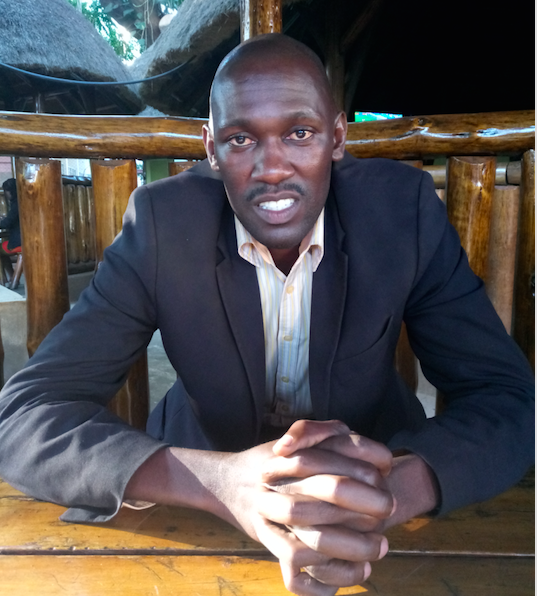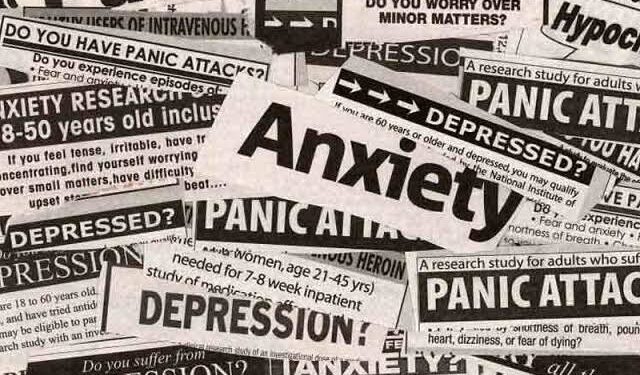By Evelyn Lirri
Even before the COVID-19 pandemic hit Uganda, Benon Kabale faced challenges accessing health care for his mental health disorder. From the long distance to the facility, to the lack of access to some crucial drugs and the general high cost of treatment that he needed to take regularly to prevent a relapse of his condition.
Kabale lives with Bipolar Affective Disorder, a mental health condition whose severe mood swings can range from extreme high to extreme low. Measures that the government put in place to prevent the spread of COVID-19 have made it doubly difficult for Kabale and other people with mental health challenges to access services and care amidst growing stigma and discrimination.

“The second lockdown in June happened at a time when I had just suffered a relapse. It became difficult to access the hospital. Boda-bodas were hesitant to carry patients because of the various roadblocks. Even if you had a medical pass, you could not access the facilities easily. Many were treating only emergency cases,” says Kabale.
At Butabika hospital where he was admitted for several days, Kabale says there were few health workers to comprehensively attend to patients.
“Because of the fear of contracting COVID-19, the health workers did not want to interact with patients and yet caretakers are not allowed into the facility. This had an impact on the quality of services that patients were receiving,” notes Kabale, who is also a community mental health peer educator.
He further adds that on some occasions, patients with severe mental health conditions could not be admitted to hospitals because health workers feared they could be super spreaders for the virus.
As has been the case for many countries, the COVID-19 pandemic has disrupted access to mental health care services, with lockdowns and other restrictions making it difficult for patients to receive care. In some cases, facilities opted to put other services on hold and focus treatment largely on the management of COVID-19.
Furthermore, stigma, low knowledge and beliefs that mental health cannot be cured have also made it difficult for some patients to seek timely care.
Indeed, in the midst of rising COVID-19 numbers in the country, it was reported that several hospitals converted their mental health wards into makeshift treatment and isolation centres to manage patients battling the virus. This only exacerbated gaps in the already limited access to care. At Soroti hospital, for instance, the psychiatric ward was turned into a COVID-19 management facility as admission numbers continued to grow.
A study conducted between July and August 2020 by the World Health Organization (WHO) in 28 African countries including Uganda found that while these countries included mental health in their COVID-19 response, disruptions including restrictions on movement of people and the banning of public transportation hindered access to health facilities.
The assessment was undertaken as part of the first global examination of the impact of COVID-19 on access to mental health services. With increasing pressure on health systems and rising demand for services, poor funding has contributed to the challenges of dealing with mental health.

“COVID-19 is adding to a long simmering mental health care crisis in Africa. Leaders must urgently invest in life-saving mental health care services,” Dr Matshidiso Moeti, the WHO regional director for Africa noted.
Uganda already suffers a huge deficit in mental health professionals and treatment facilities. An assessment report that examined the country’s mental health systemconcluded that there were 1.13 human resources working in mental health per 100,000 of the population. The numbers were particularly low for clinical psychologists, social workers and occupational therapists—all crucial part of the human resource required for quality mental healthcare service delivery. The assessment found that while most psychiatrists worked for both the government and private facilities, there was uneven distribution of human resources, with the national mental referral hospital at Butabika having most of the professionals.
The country currently has 14 public mental health treatment centres and 47 psychiatrics, most of whom are based in Kampala, for a population of 42 million.
Critical funding gaps also continue to make it difficult for mental health to be managed adequately in the country. Currently, only about one per cent of the country’s budget for primary healthcare is dedicated to addressing mental health.
With limited financial support, inadequate number of specialists and the infrastructure to manage mental health cases, experts say resource-strained countries such as Uganda need to centre community mental health care as the primary form of care for patients with psychiatric needs.
“Models for community mental health care, such as integrating psychiatric care into everyday clinical practices are crucial during this pandemic,” a team of Ugandan mental health experts recommended in a March 2021 study.
But it is not only those with pre-existing mental health disorders who have experienced disruption in treatment access and care alone.
According to Don Zane Muwanguzi from Awesome Mind Speaks, a youth led organization focused on mental health, lockdown measures triggered mental illnesses which subsequently saw more young people seeking services for mental health related conditions during the lockdown than during the period pre-covid. However, this high demand for services could not be adequately met as many facilities were focused on treating COVID-19 patients and only handling very severe non-covid-19 cases.
For mental health, Muwanguzi noted that most of the cases were related to young people dealing with social exclusion, anxiety and depression.
“Before the lockdown, we would get about 30 people reaching out to us in a week. Now that number is between 50 and 60. Many are calling to seek help and we always link them to the different service providers that we work with,” says Muwanguzi.
However, cost remains a big challenge. Part of the healing process for those dealing with mental health, drug and alcohol abuse and trauma involves undergoing several sessions of counselling and therapy. Muwanguzi says sessions can cost up to Shs100,000 each.
“This is not a cost many people are able to pay for. So, when they are willing to undergo therapy to manage their mental health condition, they might not have the money,” says Muwanguzi.
Ultimately, he says more investment by the government for mental health services will be crucial in addressing the existing challenges and increasing access to care.


